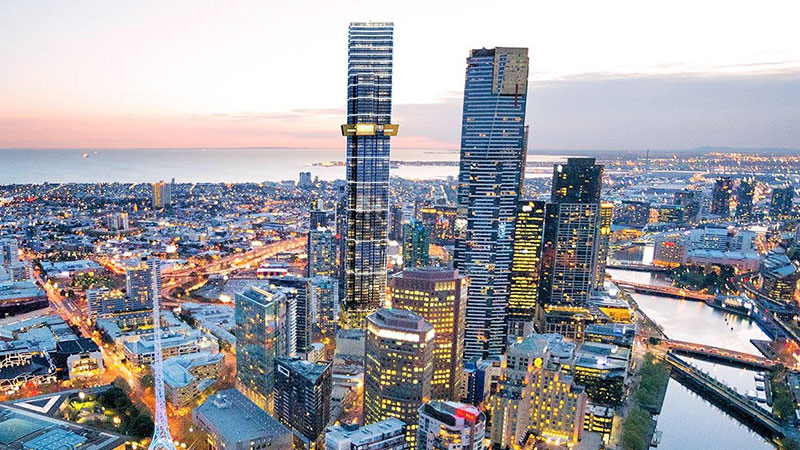‘These Are the Biggest Challenges’: Bill Sharples, Karl Fender on Cities That Go Beyond
Urban sprawl is not sustainable, SHoP Architects co-founder Bill Sharples said at Urbanity ’19.
“One of the challenges cities have, across the world, and particularly in New York is, [the] housing crisis and the issue of climate change,” he added.
Speaking at Wednesday’s Urbanity conference with Fender Katsalidis founding partner Karl Fender and comedian and architectural aficionado Tim Ross, Sharples spoke of the rising costs of real estate and ever mounting cost of construction as further challenges to address.
“Density is the most sustainable thing we can do,” Sharples said.
“[It’s the only way] cities are going to survive. Urban sprawl is not sustainable in the environment we’re moving towards.”
Founding director of the Melbourne-based practice, Karl Fender is an urbanist and advocate for apartment living, he lives on the 71st floor of Melbourne’s Eureka Tower he helped create.
“Attitudes are starting to change towards apartment living,” Fender said.
“It’s a more sustainable way to live that uses much less land.”
As the son of migrant dutch parents from Indonesia, Fender says he grew up in what used to be Melbourne's outer suburbs in the 1950s, and while he’s heard a lot of public opinion against high density, with the evolution of new technologies to build more sustainably, he believes it’s the way forward.
“Look, it’s an evolution. These things don't happen overnight.
“Twenty years ago a Melbourne apartment was not a popular thing. Now an apartment is a very popular commodity.”

“People actually love to live in the city... there's vibrancy,” Sharples added.
“But at the end of the day, most people cant afford to. A lot of blue collar workers can’t afford to live there.
“And so, for us, that’s the crisis.
“This has to evolve, and technology is a big part of this,” he added.
“We have to figure out how to re-engage a much more sustainable way of building that allows more people the opportunity to live in our cities.
“I would say Australia is doing a lot right and is incredibly progressive.
“The CLT, pre-fab, the modular buildings—this is the kind of stuff, the kind of innovation we need to see. And it’s local innovation.
“Because at the end of the day, if we don’t have this, the only people who are going to be able to afford living in the city are the people who have money. And that's a killer.”
“So for everyone in this audience, these are the biggest challenges we need to address, it’s how can we build smarter?
“How can we build more efficiently?
“And it’s possible. With the technology we have today. The brainpower. It’s very possible.”














